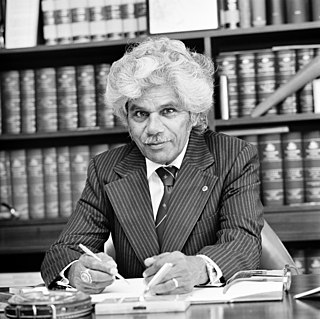A Quote by Sue Monk Kidd
Back in the autumn I had awakened to a growing darkness and cacophony, as if something in the depths were crying out. A whole chorus of voices. Orphaned voices. They seemed to speak for all the unlived parts of me, and they came with a force and dazzle that I couldn't contain. They seemed to explode the boundaries of my existence. I know now that they were the clamor of a new self struggling to be born.
Related Quotes
There was once a town in the heart of America where all life seemed to live in harmony with its surroundings Then a strange blight crept over the area and everything began to change There was a strange stillness The few birds seen anywhere were moribund; they trembled violently and could not fly. It was a spring without voices. On the mornings that had once throbbed with the dawn chorus of scores of bird voices there was now no sound; only silence lay over the fields and woods and marsh.
It was a spring without voices. On the mornings that had once throbbed with the dawn chorus of robins, catbirds, doves, jays, wrens, and scores of other bird voices there was now no sound; only silence lay over the fields and woods and marsh... Even the streams were now lifeless... No witchcraft, no enemy action had silenced the rebirth of new life in this stricken world. The people had done it themselves.
In a thousand voices singing the Hallelujah Chorus in Handel's "Messiah," it is possible to distinguish the leading voices, but the differences of training and cultivation between them and the voices in the chorus, are lost in the unity of purpose and in the fact that they are all human voices lifted by a high motive.
As they were leading me up, I looked up and around the galleries and I could feel the whole Aboriginal race, of those who had gone before, were all up there, and I could visualise, I could hear voices and amongst those voices was the voice of my grandfather saying, 'It's alright now boy, you are finally in the council with the Australian Elders. Everything is now going to be alright.'
They were still in the happier stage of love. They were full of brave illusions about each other, tremendous illusions, so that the communion of self with self seemed to be on a plane where no other human relations mattered. They both seemed to have arrived there with an extraordinary innocence as though a series of pure accidents had driven them together, so many accidents that at last they were forced to conclude that they were for each other. They had arrived with clean hands, or so it seemed, after no traffic with the merely curious and clandestine.
Historically, women's voices were central to food narratives, yet they were marginalized, and what happened at the table, the kitchen, the garden, and the fields was silenced. I'm very interested in how food appears in the historical record and animates our understanding of the South. It provides texture both to the past and to our contemporary experience. My work is not about discovering new voices, but rather it encourages voices that have been silenced to come forward and speak a little louder.
I now understand what Nelle Morton meant when she said that one of the great tasks in our time is to "hear people to speech." Behind their fearful silence, our students want to find their voices, speak their voices, have their voices heard. A good teacher is one who can listen to those voices even before they are spoken-so that someday they can speak with truth and confidence.
You really shouldn’t do that to people," I criticized. "It’s hardly fair." "Do what?" "Dazzle them like that – she’s probably hyperventilating in the kitchen right now." He seemed confused. "Oh come on," I said dubiously. "You have to know the effect you have on people." He tilted his head to one side, and his eyes were curious. "I dazzle people?" "You haven’t noticed? Do you think everybody gets their way so easily?" He ignored my questions. "Do I dazzle you?" "Frequently," I admitted.
When the railroad trains moaned, and river-winds blew, bringing echoes through the vale, it was as if a wild hum of voices, the dear voices of everybody he had known, were crying: "Peter, Peter! Where are you going, Peter?" And a big soft gust of rain came down. He put up the collar of his jacket, and bowed his head, and hurried along.
The light bulb going off in my head was a fear that in this pivotal moment in history, when America faces so many serious problems, when the middle class and working class of this country are being decimated, that there were not voices out there representing the tens of millions of people who needed a voice. And the idea of going through a campaign where there is not a serious discussion about the most important issues facing America, where there are not voices out there representing people who are hurting - that seemed to me unacceptable.
I realized the shells were talking in a voice I recognized. I should have; it was my own. Had I always known that? I suppose I had. On some level, unless we're mad, I think most of us know the various voices of our own imaginations. And of our memories, of course. They have voices, too. Ask anyone who has ever lost a limb or a child or a long-cherished dream. Ask anyone who blames himself for a bad decision, usually made in a raw instant (an instant that is most commonly red). Our memories have voices, too. Often sad ones that clamor like raised arms in the dark.
These phantoms speak with human voices — friendly, vapor- like shapes, without substance, able to vanish or appear at will, to pass in and out through the walls of the fuselage as though no walls were there. At times, voices come out of the air itself, clear yet far away, traveling through distances that can't be measured by the scale of human miles; familiar voices, conversing and advising on my flight, discussing problems of my navigation, reassuring me, giving me messages of importance unattainable in ordinary life.
Voice actors I used to know who were starting out in comedy were guys who did a lot of voices. They were usually comedy actors who developed their comedy by doing tons of impressions and voices that were usually very funny. And I never did any of that, so that's, I guess, why I don't consider myself a voice actor.





































